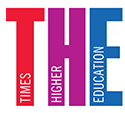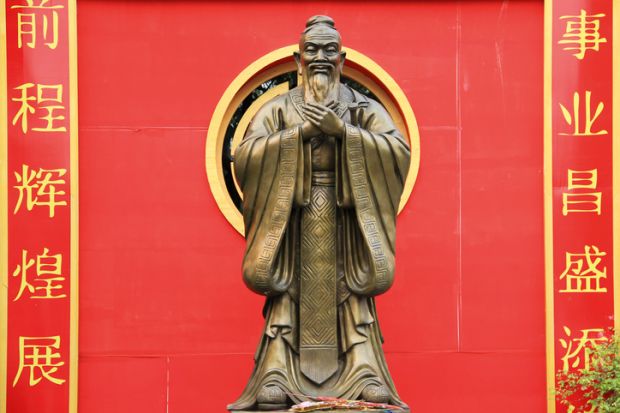In unprecedented comments ahead of federal elections in September, Anja Karliczek applauds university that shuttered its institute
A statement from the education and research minister that Germany has “given too much space” to Confucius Institutes has been seen as the latest sign that the country is turning against the Beijing-sponsored centres.
Announcing an extra €5 million (£4.3 million) to bolster German “independent China expertise”, Anja Karliczek said: “I do not want the Chinese government to influence our universities and our society.
“Germany must admit self-critically: in some places in the past, we have given too much space to the Confucius Institutes, for example, and have done too little ourselves to build up independent China expertise in Germany.”
Ms Karliczek applauded a recent decision by Trier University to suspend all activities of its own Confucius Institute and instead forge academic collaborations “based on universal values”.
Trier shuttered its institute after China announced sanctions against a range of European academics and thinktanks in March. Critics said that the sanctions were an attempt to stifle academic scrutiny of the ruling Communist Party.
The minister’s rhetoric was “really tough” and unprecedented, said Peter-André Alt, president of the German Rectors’ Conference.
“We welcome any activities that develop China expertise,” he said. But while a handful of German universities had cut ties, Confucius Institutes in Germany were “much more diverse than we might have expected” and were “very much dependent on the people in charge of them”, he stressed.
“It’s right to say we must be independent,” he said. But it would be wrong to apply “general” advice on how universities, which are themselves autonomous, should deal with their institutes, he cautioned.
Ms Karliczek’s latest intervention echoed concerns in Brussels that the European Union lacked a knowledge base to understand the country it labelled a “systemic rival” for the first time in 2019.
“Issues related to Chinese politics, foreign policy, society and economy are understudied and not mainstreamed,” warned a note circulated among European commissioners last month, Politico reported.
In recent years a drip feed of stories in Germany have raised alarm bells over Chinese influence in German universities. The University of Hamburg cut ties with its Confucius Institute last year over the risk that it could be used as a “propaganda instrument” or steer what academics or students work on.
As Germany heads toward tightly contested federal elections in September, Confucius Institutes have even become a minor election issue, with both the liberal Free Democrats (FDP) and far-right Alternative for Germany pledging to make them “independent”.
The Greens, currently polling in second place after Ms Karliczek’s ruling conservative Union, are seen as taking a more hawkish approach towards China because of human rights violations.
“There will be a much stronger position towards China after the election,” Professor Alt predicted. The minister’s comments could be seen as “part of the campaign.”
The FDP in particular has urged the federal government to investigate suspected influence over German universities by the institutes, said Barbara Pongratz, an analyst at the Berlin-based Mercator Institute for China Studies.
Whether the election led to a shift away from the institutes in Germany depended on coalition negotiations, and education is a federal policy, she stressed.
But the minister’s intervention was nonetheless “a sign of a broad shift,” she said.


0 Comments